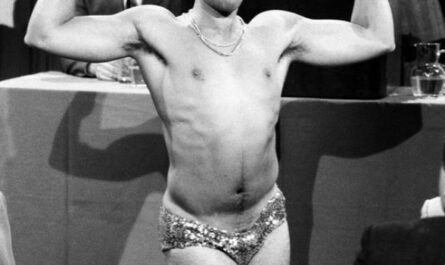Geralt of Rivia, the enigmatic monster slayer at the heart of The Witcher series, is far more than just a sword-wielding hero. His character is a rich tapestry woven with layers of complexity, depth, and nuance. To truly comprehend the essence of Geralt, one must delve beneath the surface and explore the myriad facets that contribute to his unique persona. From his witcher mutations to his philosophical contemplations, Geralt’s character is a fascinating study in contrasts and contradictions. In this comprehensive analysis, we uncover the hidden depths of Geralt of Rivia’s character and unravel the complexities that define him as one of the most compelling protagonists in modern fantasy literature and gaming.
1. Witcher Mutations: The Blessing and Curse of Superhuman Abilities
At the core of Geralt’s identity lies his status as a witcher—a genetically enhanced monster hunter trained from a young age to combat supernatural threats. The rigorous witcher mutations he underwent have endowed him with superhuman strength, speed, reflexes, and senses, making him a formidable adversary in battle. However, these mutations come at a cost, both physically and socially. Geralt is often viewed with suspicion and mistrust by ordinary humans, who see him as a mutant and an outsider. This duality of power and prejudice shapes Geralt’s worldview and informs his interactions with the world around him.
2. Stoicism and Professionalism: The Witcher Code
As a witcher, Geralt adheres to a strict code of conduct that governs his actions and decisions. The Witcher Code emphasizes principles of stoicism, neutrality, and professionalism, requiring witchers to maintain a detached demeanor and refrain from interfering in the affairs of humans. Geralt approaches his monster-slaying work with a sense of duty and discipline, often suppressing his emotions and personal biases in favor of fulfilling his contractual obligations. This adherence to the Witcher Code underscores Geralt’s commitment to his profession and shapes his identity as a solitary warrior navigating a morally ambiguous world.
3. Internal Conflict and Moral Complexity: The Gray Areas of Morality
Despite his outward stoicism, Geralt grapples with internal conflicts and moral dilemmas that challenge the precepts of the Witcher Code. He possesses a strong sense of justice and compassion, often finding himself torn between the rigid dictates of his profession and his innate desire to help those in need. Geralt’s journey is fraught with moral ambiguity, as he navigates the murky waters between right and wrong, duty and conscience. His willingness to confront these ethical quandaries adds depth to his character and highlights the complexity of his moral compass.
4. Dark Past and Haunted Memories: The Weight of History
Geralt’s past is shrouded in mystery and tragedy, with hints of a traumatic childhood and profound loss. These experiences have left an indelible mark on his psyche, shaping his cynical worldview and guarded nature. Geralt carries the emotional scars of past trauma and the burden of a life steeped in violence and conflict. His haunted memories serve as a constant reminder of the sacrifices he has made and the toll that his profession has exacted upon his soul.
5. Evolving Relationships: Bonds of Love, Loss, and Duty
Throughout his journey, Geralt forms complex and evolving relationships with a diverse cast of characters, most notably with the sorceress Yennefer and the young princess Ciri. These relationships challenge Geralt’s stoic facade and force him to confront his emotional vulnerabilities. He experiences love, loss, and the complexities of fatherly bonds as he navigates the intricacies of human connection in a world fraught with peril and betrayal. Geralt’s capacity for empathy and devotion adds depth to his character and underscores the profound impact of interpersonal relationships on his journey.
6. Philosophical Contemplations: The Search for Meaning and Purpose
Geralt is not merely a swordsman; he is also a philosopher, pondering the deeper mysteries of existence and the nature of morality. He grapples with existential questions and the complexities of the world around him, refusing to blindly accept societal norms or expectations. Geralt’s philosophical contemplations add a layer of intellectual depth to his character, elevating him beyond the archetype of the stoic hero and positioning him as a thoughtful and introspective protagonist in a genre often defined by action and adventure.
Conclusion: Geralt of Rivia—A Character of Depth and Complexity
In conclusion, Geralt of Rivia is far more than just a monster slayer; he is a multifaceted and deeply nuanced character whose complexity knows no bounds. From his witcher mutations to his internal conflicts, dark past, evolving relationships, and philosophical musings, Geralt embodies the quintessence of the anti-hero archetype—a flawed yet compelling figure grappling with the complexities of life, morality, and destiny. As fans continue to explore the rich and immersive world of The Witcher, Geralt stands as a testament to the enduring appeal of characters who defy easy categorization and challenge our perceptions of heroism and humanity. In the vast and unforgiving landscapes of fantasy literature and gaming, Geralt of Rivia shines as a beacon of depth, complexity, and moral ambiguity—an enduring icon of the genre and a symbol of the enduring power of storytelling to captivate and inspire audiences around the world.



